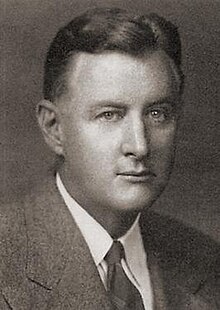C. Vann Woodward
| C. Vann Woodward | |
|---|---|
 |
|
| Born | Comer Vann Woodward November 13, 1908 Vanndale, Arkansas, U.S. |
| Died | December 17, 1999 (aged 91) Hamden, Connecticut, U.S. |
| Nationality | American |
| Institutions |
Yale University Johns Hopkins University (1946-1962) |
| Alma mater |
Emory University Columbia University (M.A.) University of North Carolina at Chapel Hill (Ph.D.) |
| Doctoral advisor | Howard K. Beale |
| Notable students | Sheldon Hackney, Steven Hahn, Richard J. Jensen |
| Notable awards |
Bancroft Prize (1952) Pulitzer Prize for History (1982) |
Comer Vann Woodward (November 13, 1908 – December 17, 1999) was an American historian focusing primarily on the American South and race relations. He was considered, along with Richard Hofstadter and Arthur Schlesinger, Jr., to be one of the most influential historians of the postwar era, 1940s–1970s, both by scholars and by the general public. He was long a supporter of the approach of Charles A. Beard, stressing the influence of unseen economic motivations in politics. Stylistically, he was a master of irony and counterpoint. Woodward was on the left end of the history profession in the 1930s. By the 1950s he was a leading liberal and supporter of civil rights. After attacks on him by the New Left in the late 1960s he moved to the right politically.
C. Vann Woodward was born in Vanndale, a town named after his mother's family and the county seat from 1886-1903. It was in Cross County in eastern Arkansas. Woodward attended high school in Morrilton, Arkansas. He attended Henderson-Brown College, a small Methodist school in Arkadelphia, for two years. In 1930 he transferred to Emory University in Atlanta, Georgia, where his uncle was dean of students and professor of sociology. After graduating, he taught English composition for two years at Georgia Tech in Atlanta. There he met Will W. Alexander, head of the Commission on Interracial Cooperation, and J. Saunders Redding, a historian at Atlanta University.
...
Wikipedia
